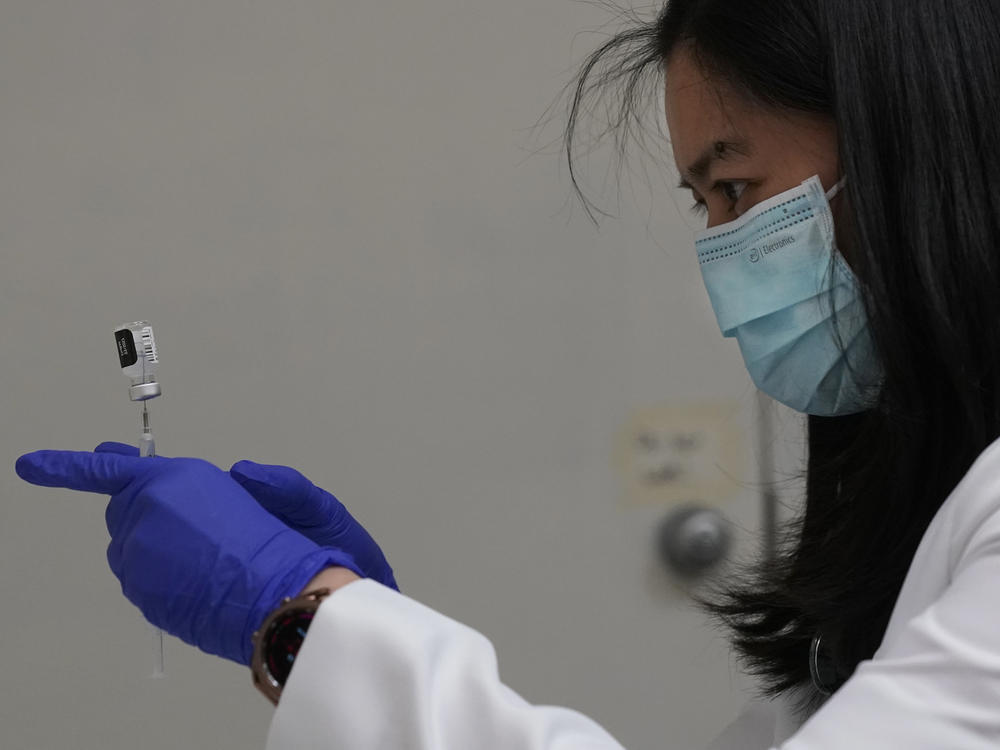Section Branding
Header Content
FDA Warns Health Officials Not To Mess With COVID-19 Vaccine Doses Schedule
Primary Content
The U.S. Food and Drug Administration is warning health care workers that any changes to the authorized dosing schedules of COVID-19 vaccines currently being administered significantly place public health at risk and undermine "the historic vaccination effort to protect the population" from the coronavirus pandemic.
The first and second doses of the Pfizer-BioNTech vaccine are approved to be delivered within a 21-day window, while the Moderna injections should be spread over 28 days. When given at those intervals, both vaccines are about 95% effective, according to the respective drugmakers.
But the FDA has heard suggestions that the number of limited doses could be stretched by cutting them in half, extending the length of time between doses, or mixing and matching vaccines in order to immunize more people against COVID-19.
In a statement on Monday, FDA officials said the changes are "premature and not rooted solidly in the available evidence."
The agency noted that during the clinical trial researchers only followed participants who failed to receive their scheduled doses "for a short period of time, such that we cannot conclude anything definitive about the depth or duration of protection after a single dose of vaccine from the single dose percentages reported by the companies."
Officials added: "If people do not truly know how protective a vaccine is, there is the potential for harm because they may assume that they are fully protected when they are not, and accordingly, alter their behavior to take unnecessary risks."
The national campaign to vaccinate people against COVID-19 has fallen far short of expectations. White House officials had projected that about 20 million people would be vaccinated by the end of December. But as of Monday morning, just 4.5 million people had received their first dose, according to the Centers for Disease Control and Prevention.
The federal government is responsible for shipping the vaccines, but the job of distributing the vials to the nation's health care professionals falls largely upon state and local governments and their success varies from state to state.
Copyright 2021 NPR. To see more, visit https://www.npr.org.

